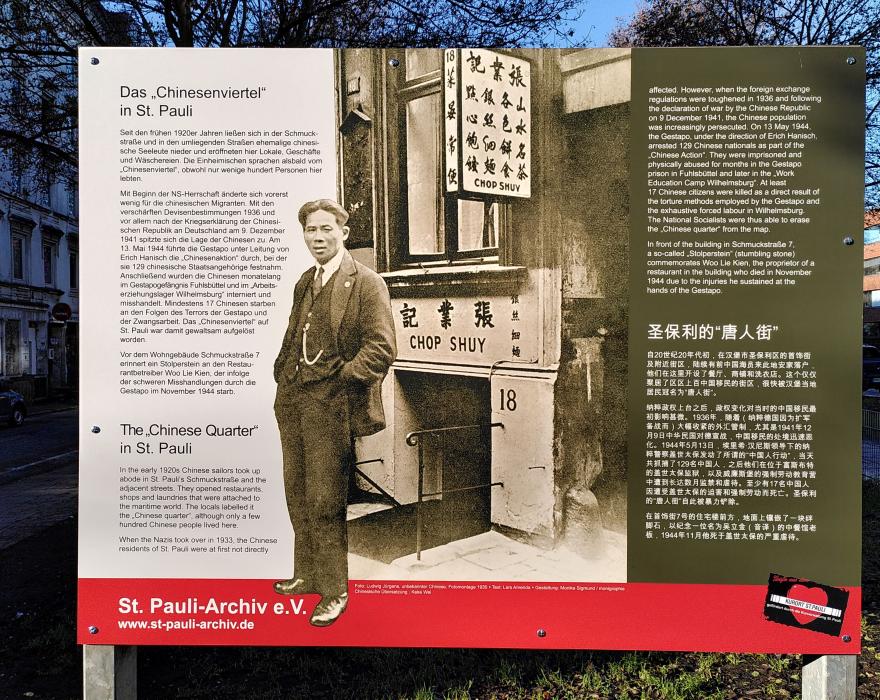
Hamburg, China und der Kolonialismus
In the Middle Ages, China was regarded as a legendary country full of riches. In the 19th century, the Western view of China changed in the wake of colonialism and Chinese emigration to the USA. In 1897, the German Empire pressurised China to give it the area around ‘Tsingtau’ (Qingdao) and opened a naval base there. Around this time, thousands of Chinese sailors were also working on German steamships and arrived in Hamburg in this way. A ‘Chinese quarter’ was even created here in St Pauli around 1925. But what colonial traces can still be found today? And what have the anti-colonial reactions been?
We will go in search of clues with Dr phil. Lars Amenda, a freelance historian and author who lives in Hamburg. Amenda is a member of the St. Pauli-Archiv e. V. (St. Pauli Archive) and has published numerous works on the history of the city of Hamburg, on sport, and on migration.
The group will meet at the Spielbudenplatz information desk. The tour is limited to a maximum of 25 participants. You will find a registration list at the starting-point of the tour, where you can secure one of the spaces from festival Wednesday on. A limited amount of these spaces will be reserved for people who decide to come along spontaneously, so don’t worry if the list is already full. Those spaces will be distributed first come first serve just before the start of the tour.
The event is being organised in cooperation with W3_Werkstatt für internationale Kultur und Politik e. V. (W3_Workshop for International Culture and Politics) as part of the project ‘Koloniale Spuren – Dekoloniale Praktiken’ (‘Colonial Traces – Decolonial Practices’), funded by the Hamburg Ministry of Culture and Media, the Catholic Development Service, Bread for the World, the Catholic Fund, and the North German Foundation for Environment and Development.
The W3_Werkstatt für internationale Kultur und Politik e. V. is a cultural and political information and education centre in Hamburg-Altona with the aim of strengthening transcultural coexistence in the city. It offers a place for encounters, ideas, and diversity in addition to inspiring critical debate.